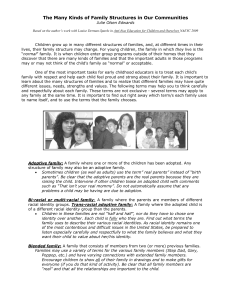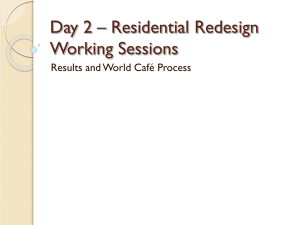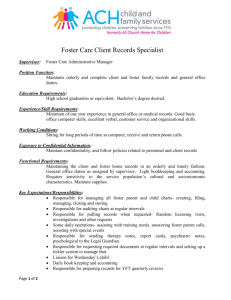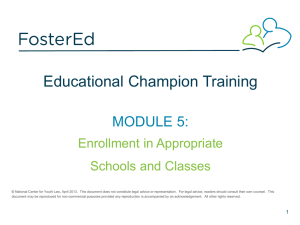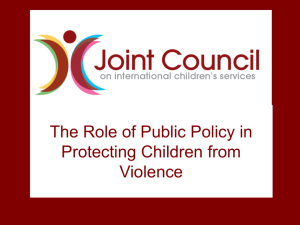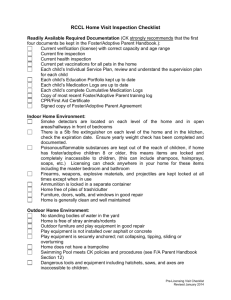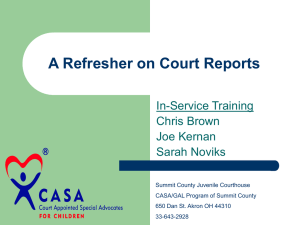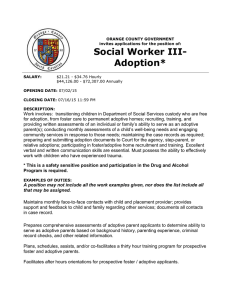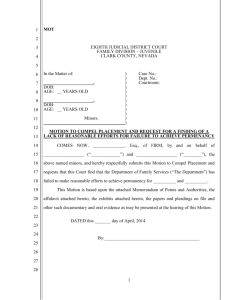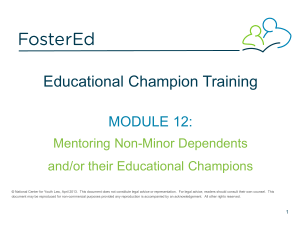Appreciative Inquiry Questions - Muskie School of Public Service
advertisement
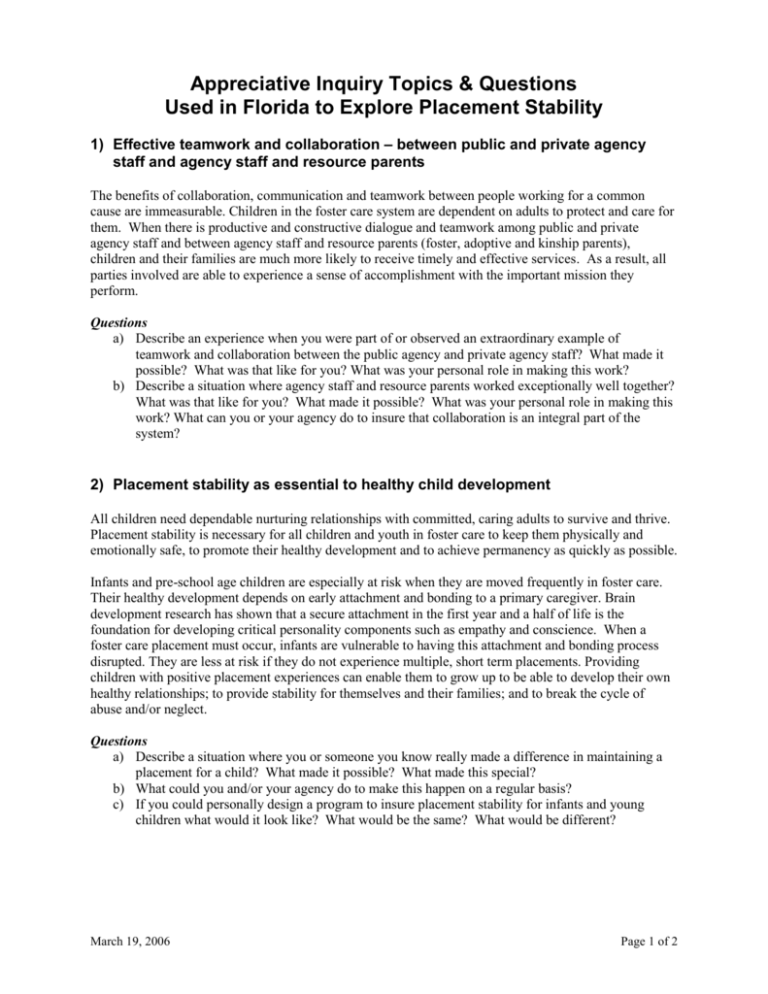
Appreciative Inquiry Topics & Questions Used in Florida to Explore Placement Stability 1) Effective teamwork and collaboration – between public and private agency staff and agency staff and resource parents The benefits of collaboration, communication and teamwork between people working for a common cause are immeasurable. Children in the foster care system are dependent on adults to protect and care for them. When there is productive and constructive dialogue and teamwork among public and private agency staff and between agency staff and resource parents (foster, adoptive and kinship parents), children and their families are much more likely to receive timely and effective services. As a result, all parties involved are able to experience a sense of accomplishment with the important mission they perform. Questions a) Describe an experience when you were part of or observed an extraordinary example of teamwork and collaboration between the public agency and private agency staff? What made it possible? What was that like for you? What was your personal role in making this work? b) Describe a situation where agency staff and resource parents worked exceptionally well together? What was that like for you? What made it possible? What was your personal role in making this work? What can you or your agency do to insure that collaboration is an integral part of the system? 2) Placement stability as essential to healthy child development All children need dependable nurturing relationships with committed, caring adults to survive and thrive. Placement stability is necessary for all children and youth in foster care to keep them physically and emotionally safe, to promote their healthy development and to achieve permanency as quickly as possible. Infants and pre-school age children are especially at risk when they are moved frequently in foster care. Their healthy development depends on early attachment and bonding to a primary caregiver. Brain development research has shown that a secure attachment in the first year and a half of life is the foundation for developing critical personality components such as empathy and conscience. When a foster care placement must occur, infants are vulnerable to having this attachment and bonding process disrupted. They are less at risk if they do not experience multiple, short term placements. Providing children with positive placement experiences can enable them to grow up to be able to develop their own healthy relationships; to provide stability for themselves and their families; and to break the cycle of abuse and/or neglect. Questions a) Describe a situation where you or someone you know really made a difference in maintaining a placement for a child? What made it possible? What made this special? b) What could you and/or your agency do to make this happen on a regular basis? c) If you could personally design a program to insure placement stability for infants and young children what would it look like? What would be the same? What would be different? March 19, 2006 Page 1 of 2 3) Effective retention and recruitment of foster and adoptive parents (resource parents) Studies on successful recruitment efforts suggest that families who come forward are very mission driven, have thought about it a long time and/or are often influenced by other people they know who have been successful and satisfied with their experience as foster or adoptive parents. Having a good working relationship with the agency, feeling a sense of accomplishment and being able to access support services when they are needed can lead to higher satisfaction and retention of resource parents. Good retention practices support effective recruitment efforts. Questions a) If you had 3 wishes for improving the satisfaction and retention of foster and adoptive parents what would they be? b) Tell us about the most effective recruitment program you have ever been involved with? What made it work so well? What was your role in making this a success? c) Describe how you personally were recruited to be a foster or adoptive parent? What was of standout importance in this experience? d) What did you and/or your agency do to maintain your interest from the first call until placement? 4) Positive partnering – of birth, kinship and foster/adoptive families Caring for children once they are removed from their homes is a challenge for all communities. It is very hard work and involves extraordinary commitment from resource parents. The hard facts are that children feel more secure, loved and protected when the adults in their lives are working together as a team to provide care and plan for the child’s best interests. Regular visiting between children, their parents, siblings and kin has been found to be the most important predictor that the family will be eventually restored. When resource families support visiting schedules and encourage contact in everyday settings, such as family activities, school activities, etc., a more natural helping network can be maintained for a child. When agencies focus on training and supporting resource parents to partner with birth and kinship families, safer and better care can be provided to children and their families. Questions a) Describe a situation that you were part of or observed where there was a strong partnership between the foster/adoptive parent and a child’s birth parents. What did you do personally to make this work? How did it make you feel? b) What could you and/or your agency do to make this happen on a regular basis? March 19, 2006 Page 2 of 2
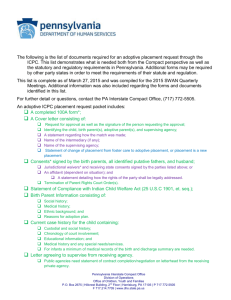
![IN SUPPORT OF [BILL/LOCAL LAW/ORDER #] TO PREVENT](http://s3.studylib.net/store/data/007674137_2-0977e9eebbd334a0536cbc5b9f940004-300x300.png)
